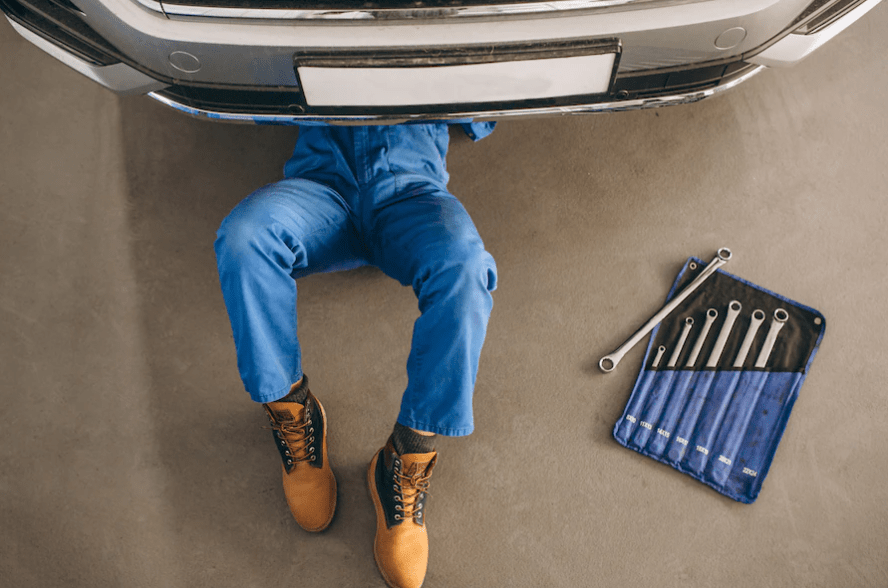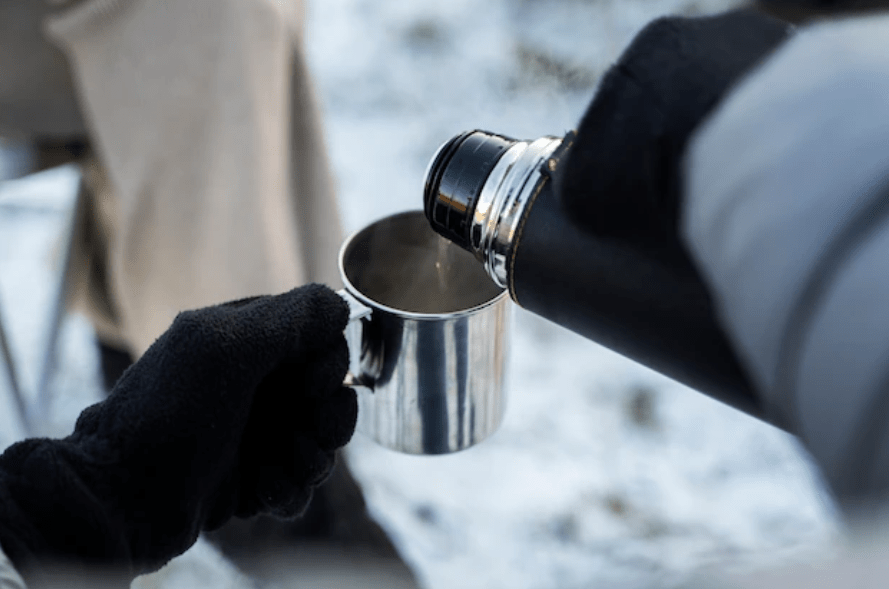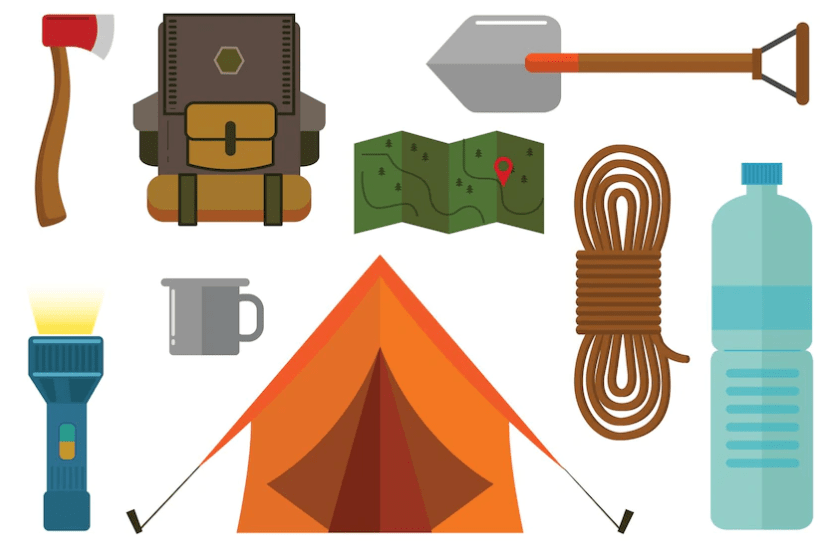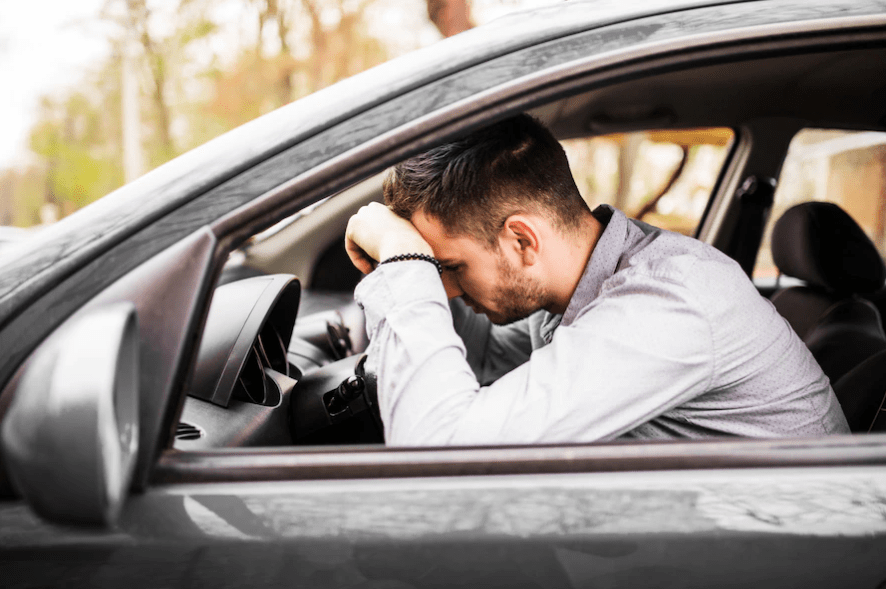Traveling by car has many advantages – you can take many things with you, and you have complete freedom of movement. On the way, you can admire the beautiful landscape and always stop where it is beautiful. In addition, traveling by car is cheaper, especially when traveling in a company.
Even if you plan to drive your vehicle to the campsite and your destination is a little further away, you should check your car thoroughly before driving.
To make the long journey fun, try to organize it well. And special attention is paid to the preparation of your car.
It is always better to optimally prepare the vehicle at home for a longer journey than if your vehicle breaks down halfway and you have to look for a workshop.
Table of Contents
How to prepare a car for a longer journey
Perhaps it is not necessary to remind you that the technical condition of the vehicle should be checked before the long journey. When was the last time you performed maintenance? Each car manufacturer has its own maintenance frequency, and if the next maintenance isn’t due for the time you’re traveling, it’s better to address it in advance.
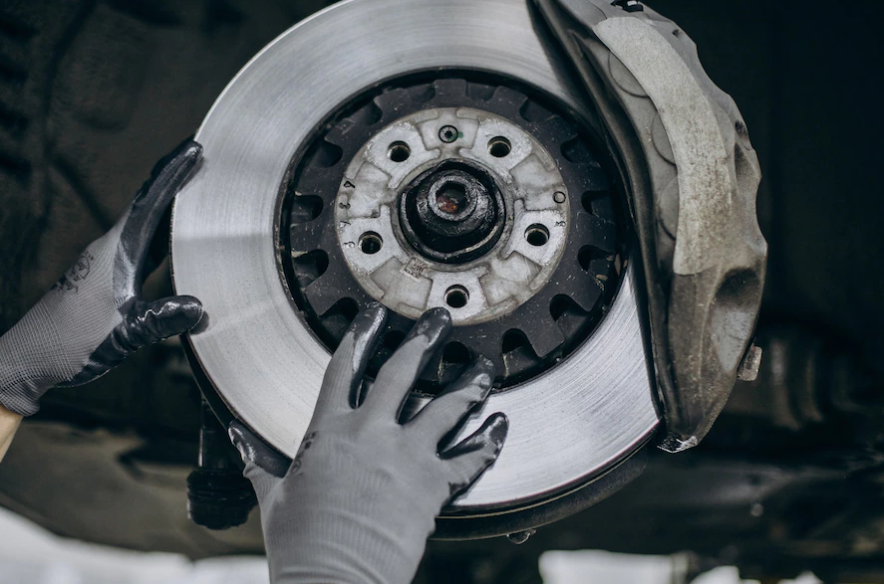
You should check many important components of the vehicle particularly carefully, as these are particularly difficult to replace on the journey. You can therefore check these components at home and, if necessary, replace them yourself or bring them to the workshop in your city to have any defective components replaced or repaired.
Five to ten days before the trip, check the car for the following points
10 things to check about your vehicle before a road trip or camping trip:
- Tires
- Liquids
- Potential leaks
- Headlights/Lamps
- Air conditioning
- Batteries
- Exhaust system
- Shock absorbers
- Suspension
- Brakes
Below you will find a detailed description of what and how you should check your vehicle.
Tires
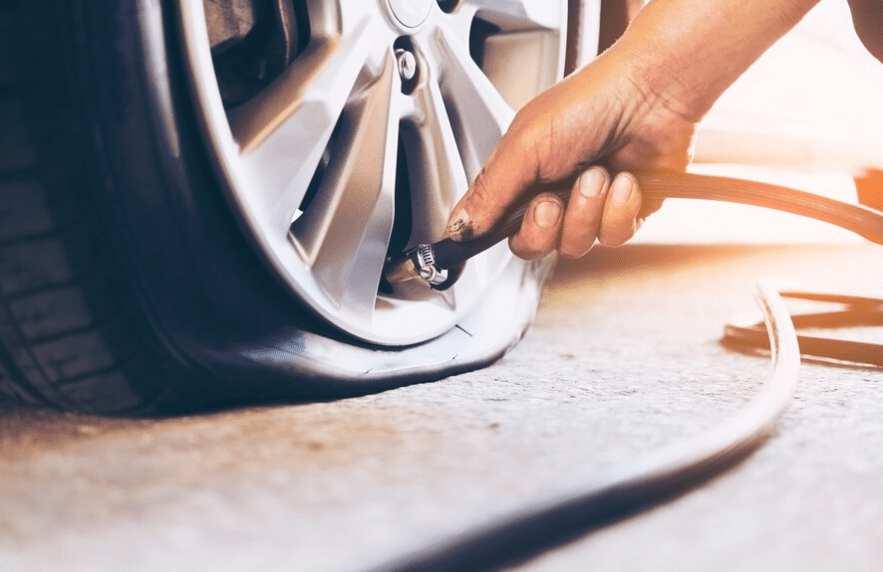
The tire pressure should correspond to the recommended pressure. They are given on the table on the driver’s door frame or on the inside of the fuel filler flap.
Pay attention to tire wear. If you have already thought about changing tires, it is better to do it before the trip and not wait for the next season.
Likewise, if you already see small cracks on the outside of the tire, you should rather have that tire replaced. A cracked tire may burst on tour, putting you and your passengers in danger.
Remember when you last balanced the wheels – repeat these procedures if you haven’t done them this year. Don’t forget to inflate the spare tire and check its functionality.
Liquids

Engine oil, brake fluid, and coolant are checked for low levels on the dipstick or tank.
The scale has markings of the normal amount and the minimum allowable amount. A level between them is a fraction of the norm. If it is less, it is better to visit the workshop. Fill a full tank with washer fluid. Perfectionists can check the oil in the power steering, but that’s optional.
It is also recommended that you have a bottle of each motor oil and coolant in the car. So you can easily top up engine oil or engine coolant.
You can also hire a workshop to check all fluids or change the engine oil. Especially before a longer tour, it can make sense to have the engine oil changed. You should have this done once a year.
Check for leaks
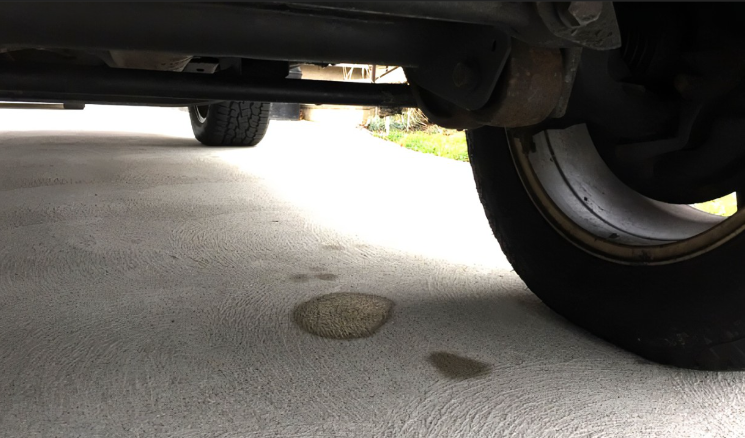
It is also very important that you check the vehicle for fluid leaks. It is important that the engine and the cooling system of your vehicle are absolutely tight. For example, if you see drops of oil or traces of coolant under your vehicle in the morning, you should definitely have these leaks repaired.
The leaks can get bigger over longer distances, or old hoses can tear off completely, damaging your engine and leading to dangerous situations on the road.
It is also very important that the engine of your vehicle does not lose any oil. If your vehicle’s engine is losing oil or is very oily, you must have these leaks repaired immediately. A closed oil circuit of the engine is very important. Likewise, oil can pollute the environment extremely. Especially before long journeys, the engine must be sealed and the oil filled up to the maximum. It’s the same with coolant. If the vehicle loses coolant, the engine can overheat and be damaged over long distances.
Headlight
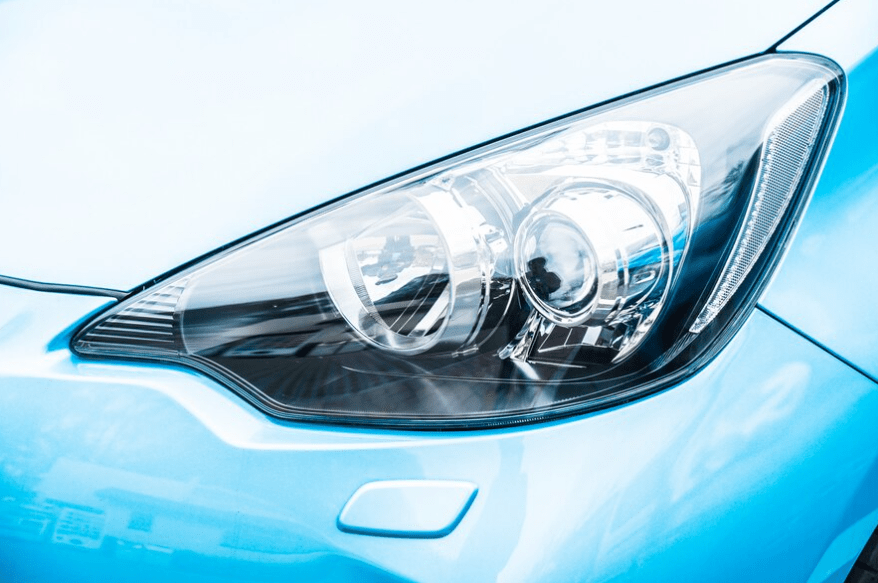
Make sure that all headlights are switched on and working – here it doesn’t work without helpers. Alternately switch on the low and high beams, fog lights, and turn signals and step on the brake. Replace the burned-out lights.
It can also be useful to have spare lamps with you. Working lights on the vehicle are very important, as they offer a lot of safety and make your vehicle easier to see in the dark.
Air conditioning

Car air conditioners are serviced and refueled once every 2-3 years. With older cars, you should do this every year. It makes sense to have your vehicle’s air conditioning checked, especially if you are traveling in the summer.
Battery
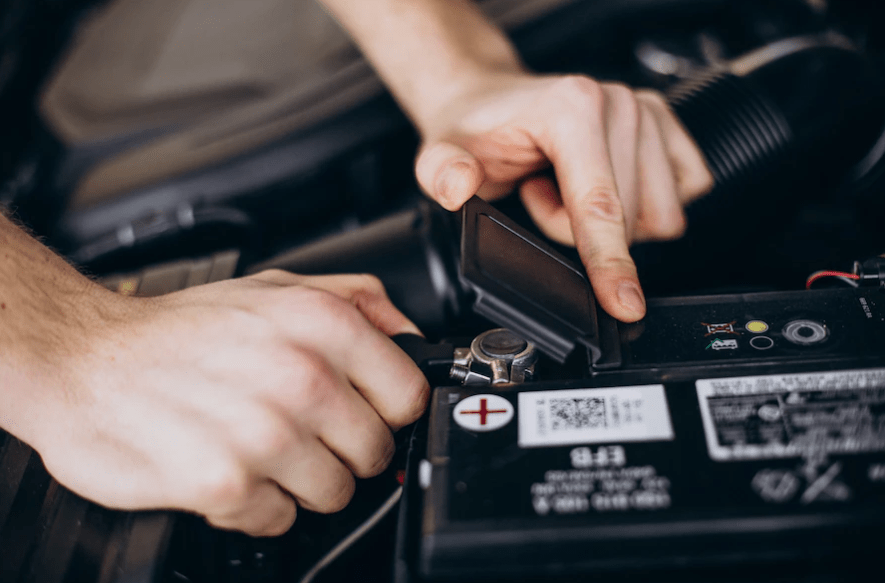
Most modern batteries are maintenance-free and are not tested without special equipment. If the battery is not more than three years old and there is nothing to worry about, then everything is fine. Otherwise, it’s better to be safe and have them checked at a garage.
Exhaust system
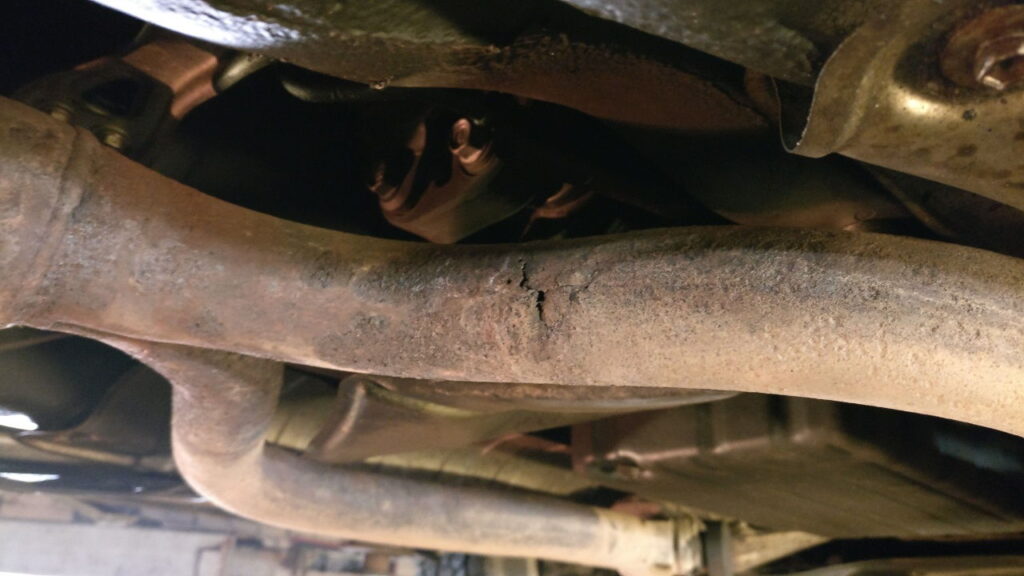
Check whether the exhaust system of your vehicle is still ok. If your vehicle’s exhaust is badly rusted, you should have it replaced with a new one.
You should also check the attachments. If the rubber mountings are very old, the rubber can become brittle and, in the worst case, the exhaust can fall off while driving.
Shock absorbers
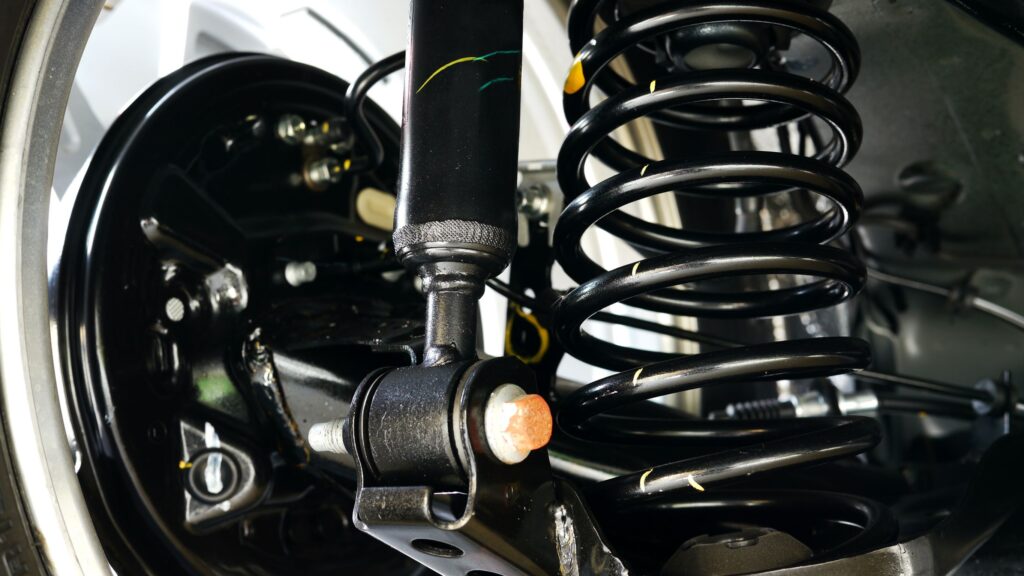
The shock absorbers are very important to ensure optimal grip of the tires on the road. If the shock absorbers are very old or defective, you should have them replaced to make your vehicle safer.
Suspension

The suspension of the vehicle axles should be checked more often because there is a lot of force and vibration there. The suspension also contributes to the safety of the vehicle and is also responsible for optimal contact between the tires and the road.
Brakes

The brakes are very important on long journeys (of course also on short journeys). If the brake pads or brake discs are worn, optimal braking performance is no longer guaranteed. The brake hoses must also be in good condition. If you drive for a long time, the brake system gets hot and defective brake hoses can burst quickly.
With defective or no longer optimal brakes, you can also endanger other people, or you cannot stop quickly enough in emergency situations.
It is therefore important that you commission a workshop to check or replace the brakes.
You should definitely take this with you
An experienced driver’s trunk has many tools and items that will help him in an emergency. This is especially important on long journeys. The better prepared you are, the better you can react in the event of a car breakdown.
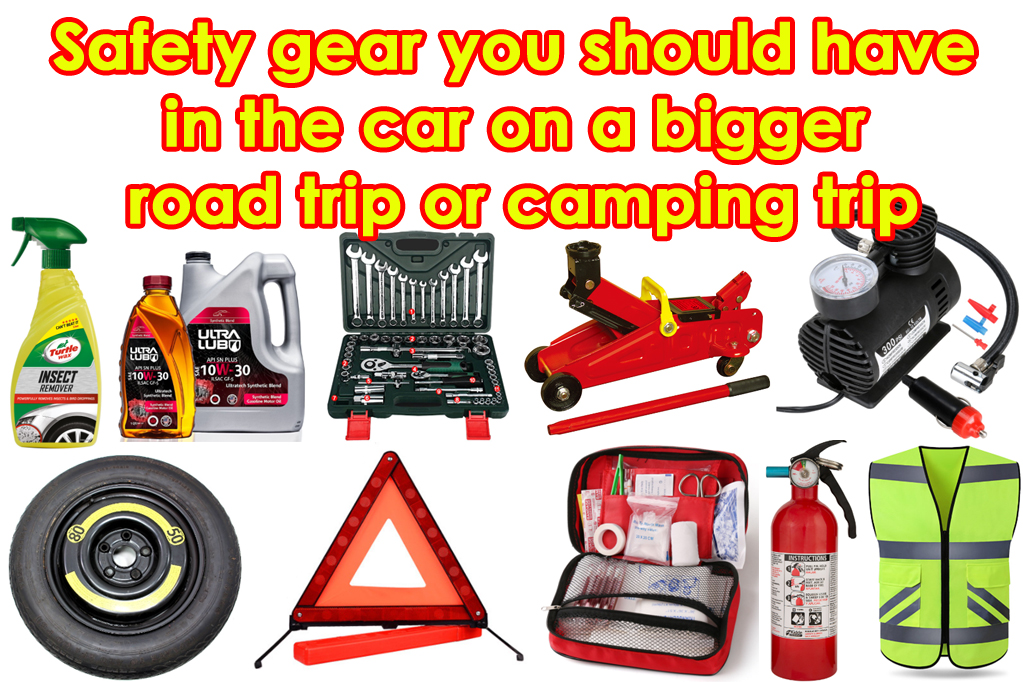
A warning triangle, first aid kit, fire extinguisher, reflective vest
They’re probably already in the trunk of your car. Make sure that everything is in order and that they are not too old, worn out, or defective.
Spare tire, pump, jack
Tire damage on the road is not uncommon. Such a set will help in unfortunate situations.
A set of tools, security locks
It is enough to pick up a couple of carabiner keys, a pair of flat and Phillips screwdrivers, and a pair of pliers. The wrenches are from size 6 to 19, take flat-head screwdrivers with a large and a small prick and Phillips head screwdrivers with a large and a small cross. Bring a pair of medium-sized combination pliers.
Engine oil, coolant, washer fluid
We have already written about the need to check the level of these liquids. You may have to refill them along the way. So buy a bottle of each liquid and put it in the trunk.
Insect cleaner for the windows
After a long drive on the road, especially in the evening, the windshield is dirty with traces of insects. Windshield wipers will not help here. You can buy these foam or liquid cleaners.
Gloves, flashlight, and folding knife
These are just very useful things. These things are not expensive and can be bought anywhere.
WD40 and Duct tape
WD40 or another universal lubricating oil can be very useful. If you need to fix something on your vehicle along the way and a bolt won’t come loose, you can use lubricating oil.
If something on your vehicle has come loose, you can temporarily fix it with duct tape.
Conclusion
Careful preparation for the trip is a guarantee that nothing will overshadow it and bring joy. Let’s recall the most important things again:
- Maintenance should not be neglected.
- Before driving, check the tires, fluid levels, lights, air conditioning, battery, and other safety-related components on your vehicle.
- Pack everything in the trunk that is necessary for car maintenance and that makes the journey comfortable.
- Make sure that the objects inside the vehicle are optimally secured.
- If you are traveling with a rooftop tent, check that all screws are tight.
Have A Good And Save Trip!

